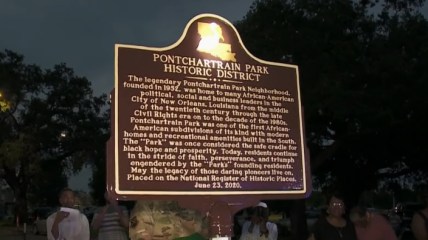California law requiring removal of racial covenants from property records now in effect
California Assembly Bill 1466, which was signed into law last fall by Gov. Gavin Newsom, went into effect July 1.
Every county recorder in California will establish a program to identify and redact unlawfully restrictive covenants from the state’s real property records by order of Assembly Bill 1466, which was signed into law last fall by Gov. Gavin Newsom and went into effect on July 1.
As The East Bay Times reported, restrictive covenants in titles and deeds once included language that said things like “no person of any race other than the Caucasian or white race” may use or occupy the property, with the exception of “domestic servants of a different race domiciled with an owner or tenant.”

As of July 1, each California county recorder must create a detailed plan that will explain how they will carry out removing the historic restrictive covenants that were once used to keep Black people out of certain neighborhoods.
The bill was part of a “robust 31-bill housing package” from Newsom’s office that is focused on “streamlining the building of new homes, breaking down barriers to build more affordable housing, addressing systemic bias by elevating fair housing principles and holding local governments accountable to do their job.”
The original bill would have required title companies to search all real estate documents provided to homebuyers for unlawful restrictive covenants and submit restrictive covenant modification (RCM) forms to effectuate the removal of any unlawful covenants that were found. It was later finetuned to be more efficient.
The Housing Rights Act outlawed discrimination on the basis of race or ethnicity in the sale or rental of housing in 1968.
Title and escrow companies are now required to notify a buyer or seller in a real estate transaction if there is a restrictive covenant on a property. Additionally, those companies will assist with the preparation of a restrictive covenant modification form.
“This law brings awareness to the fact that the covenants are not only our legacy,” Tomiquia Moss, founder of the Bay Area advocacy group All Home, told The East Bay Times, “but that their remnants are still in practice.”
TheGrio is FREE on your TV via Apple TV, Amazon Fire, Roku and Android TV. Also, please download theGrio mobile apps today!


